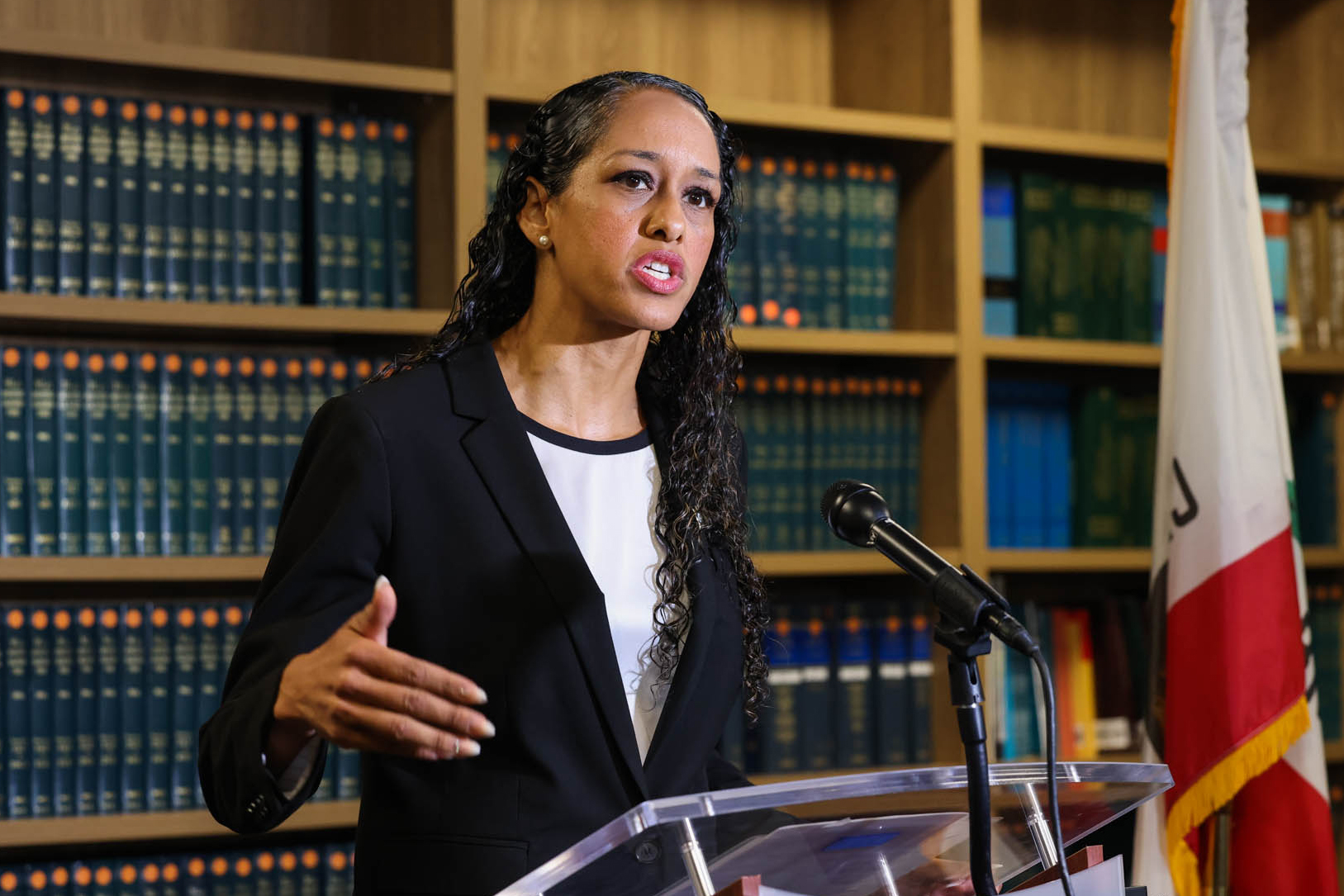San Francisco District Attorney Brooke Jenkins on Monday appointed her first member of the Innocence Commission, an independent advisory group that investigates wrongful convictions of the innocent.
Jenkins selected Julia Cervantes—former prosecutor in San Mateo County, San Francisco and Brooklyn—to act as a liaison between the District Attorney’s Office and the six-member commission, effective immediately.
“As a prosecutor, I am always mindful of the rights of the accused and that the responsibility of the prosecutor is to seek justice and not merely to convict,” Cervantes said in a statement. “I am committed to a successful Innocence Commission with an equitable and transparent referral process. I look forward to working with the other members of the Innocence Commission and doing this important work.”
Cervantes is currently the lead attorney of the District Attorney’s Office Post-Conviction Review unit. In the years prior, she worked as the city’s assistant district attorney, as well as a senior attorney in the DA’s homicide unit.
“On behalf of the Innocence Commission, we are excited to move forward and welcome Ms. Cervantes,” Lara Bazelon, Innocence Commission Chair, said in a statement. “We appreciate the District Attorney’s respect for our work and commitment to vindicating the rights of those who were wrongfully accused and convicted. Seeking justice by uncovering the truth is the core of the prosecutor’s job, and we are pleased that we can continue to offer our service to further that all-important mission.”
The Innocence Commission, first brought about by former District Attorney Chesa Boudin in 2020, was founded to be an investigative body that considers cases with claims of innocence or wrongful conviction, especially for those serving long sentences.
To be considered for review, those claiming innocence have to allege a plausible claim, and those claiming wrongful conviction must present a trial error that made their conviction “fundamentally unfair.”
It is still ultimately up to the district attorney to decide whether to seek relief for an applicant, as the commission is only an advisory body. The case is brought to the Post-Conviction Review unit if the district attorney plans to take action following the investigation.
In an effort to ensure the integrity of the commission, Jenkins announced that she will set new rules to make the referral process easier and more accessible. She also said she wants to provide greater protections so independent, investigative boards like this can work without fear of disbandment.
“Those who have been wrongfully convicted should not be left to languish in prison for crimes they didn’t commit,” Jenkins said in a statement. “Unfortunately, there are far too many cases of innocent people being behind bars when they shouldn’t be.”
